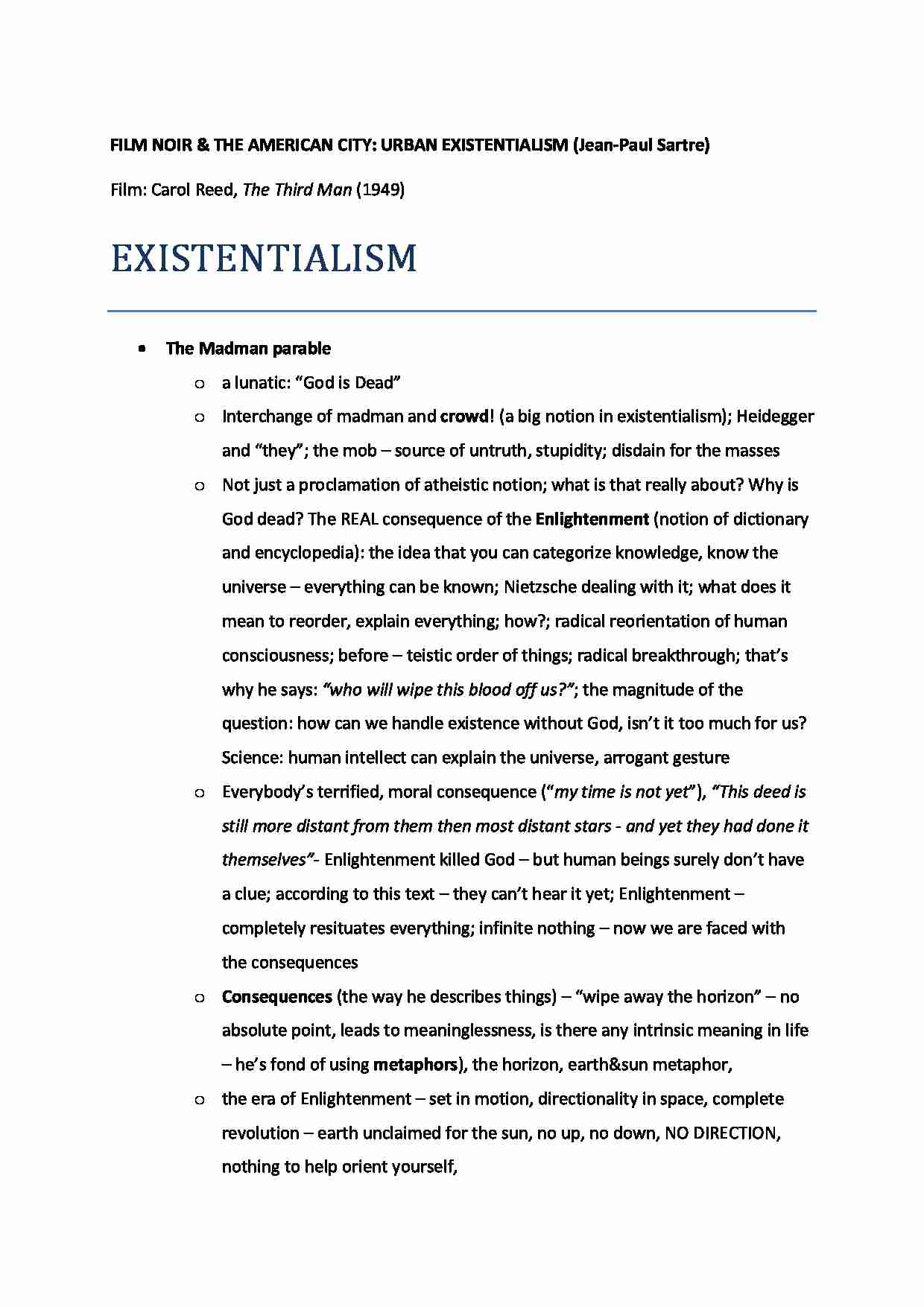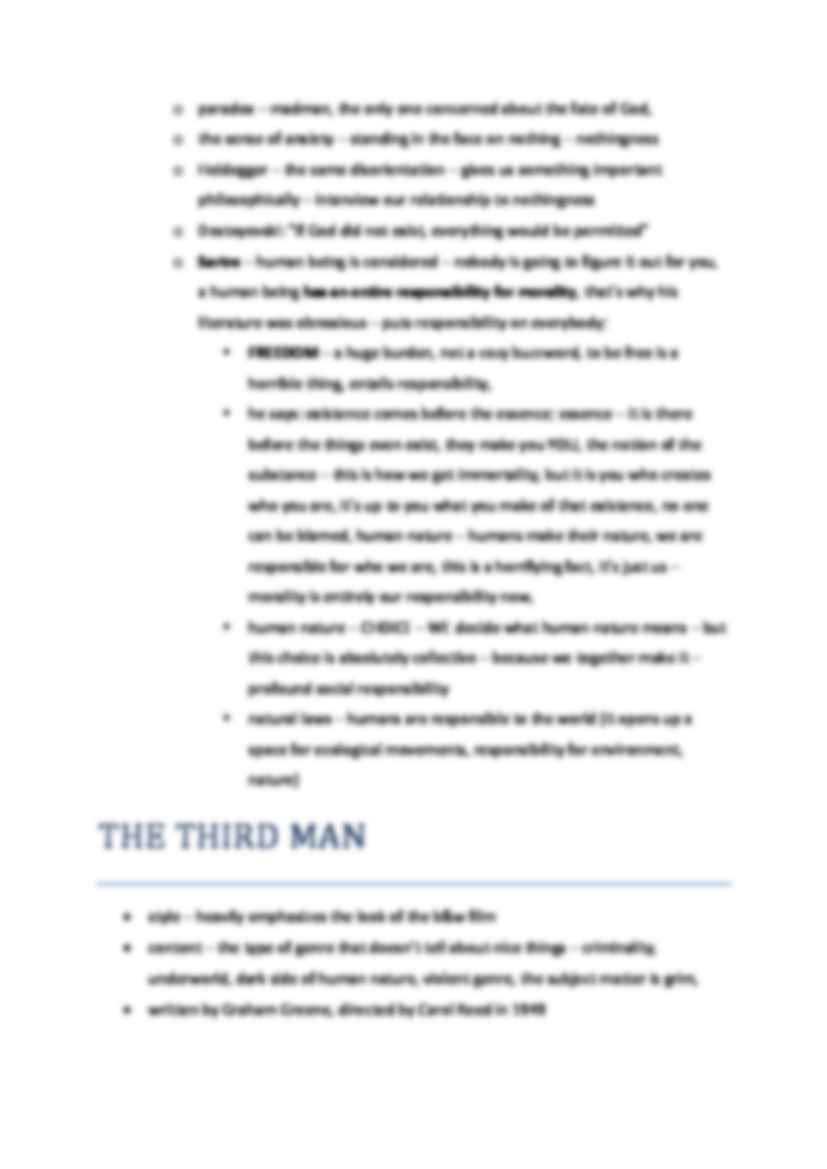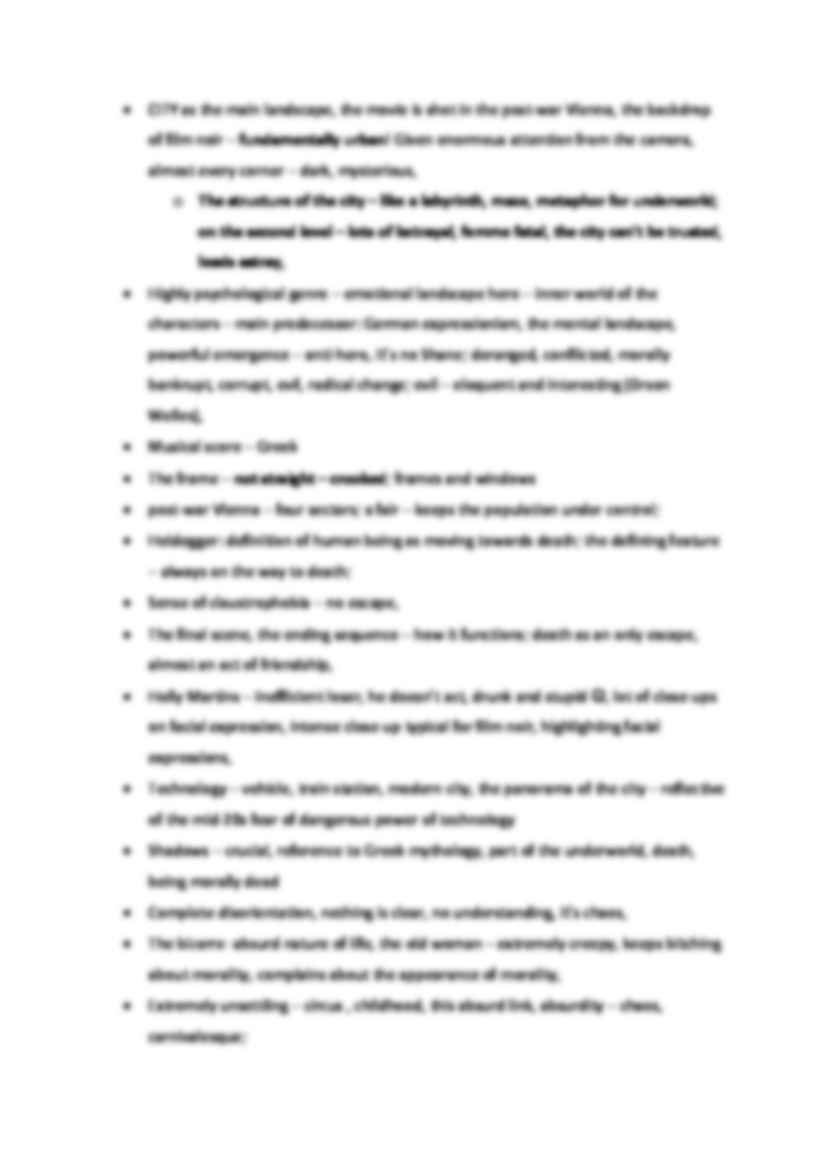FILM NOIR & THE AMERICAN CITY: URBAN EXISTENTIALISM (Jean-Paul Sartre)
Film: Carol Reed, The Third Man (1949)
EXISTENTIALISM
The Madman parable
a lunatic: “God is Dead”
Interchange of madman and crowd! (a big notion in existentialism); Heidegger and “they”; the mob - source of untruth, stupidity; disdain for the masses
Not just a proclamation of atheistic notion; what is that really about? Why is God dead? The REAL consequence of the Enlightenment (notion of dictionary and encyclopedia): the idea that you can categorize knowledge, know the universe - everything can be known; Nietzsche dealing with it; what does it mean to reorder, explain everything; how?; radical reorientation of human consciousness; before - teistic order of things; radical breakthrough; that's why he says: “who will wipe this blood off us?”; the magnitude of the question: how can we handle existence without God, isn't it too much for us? Science: human intellect can explain the universe, arrogant gesture
Everybody's terrified, moral consequence (“my time is not yet”), “This deed is still more distant from them then most distant stars - and yet they had done it themselves”- Enlightenment killed God - but human beings surely don't have a clue; according to this text - they can't hear it yet; Enlightenment - completely resituates everything; infinite nothing - now we are faced with the consequences
Consequences (the way he describes things) - “wipe away the horizon” - no absolute point, leads to meaninglessness, is there any intrinsic meaning in life - he's fond of using metaphors), the horizon, earth&sun metaphor, the era of Enlightenment - set in motion, directionality in space, complete revolution - earth unclaimed for the sun, no up, no down, NO DIRECTION, nothing to help orient yourself, paradox - madman, the only one concerned about the fate of God, the sense of anxiety - standing in the face on nothing - nothingness
Heidegger - the same disorientation - gives us something important philosophically - interview our relationship to nothingness Dostoyevski: “If God did not exist, everything would be permitted”
Sartre - human being is considered - nobody is going to figure it out for you, a human being has an entire responsibility for morality, that's why his literature was obnoxious - puts responsibility on everybody;
FREEDOM - a huge burden, not a cozy buzzword, to be free is a horrible thing, entails responsibility, he says: existence comes before the essence; essence - it is there before the things even exist, they make you YOU, the notion of the substance - this is how we get immortality, but it is you who creates who you are, it's up to you what you make of that existence, no one can be blamed, human nature - humans make their nature, we are responsible for who we are, this is a horrifying fact, it's just us - morality is entirely our responsibility now,
(…)
… everything for granted (Jacques Derrida - pull out threads from his texts)
Book X (end of the project building up cities, justice, see how it falls apart, middle part: the cave, finally finish the work - important shift happens) - seems like a throwaway but it isn't, should poets be allowed to the city, worried about the power of poetry to shape our reality, distort the thought, “farmaceu” - farmacy…
… pervades the whole movie; there is the generic convention - the final shootout
Symptomatic surface, but in a classic western - aestheticising violence served as a way of covering over actual genocide, slaughter and exploitation that took place; Dead Man - interesting inversion, Jarmusch does not act like Tarantino; he exposes the flipside of the America; intensely political; the intention here is to take…
… imperialism - notion of the purely natural (the jungle); unmediated, because we do not absorb the real, The heart of Dead Man - explores this opposition as a kind of fiction
A concept of a child - the prior (temporal scheme) precedes the copy
Temporal sequence - the result
From individual things we assemble the notion of chairness - but we say it was before - Disneyland: “real” America, to pretend everything…
... zobacz całą notatkę






Komentarze użytkowników (0)